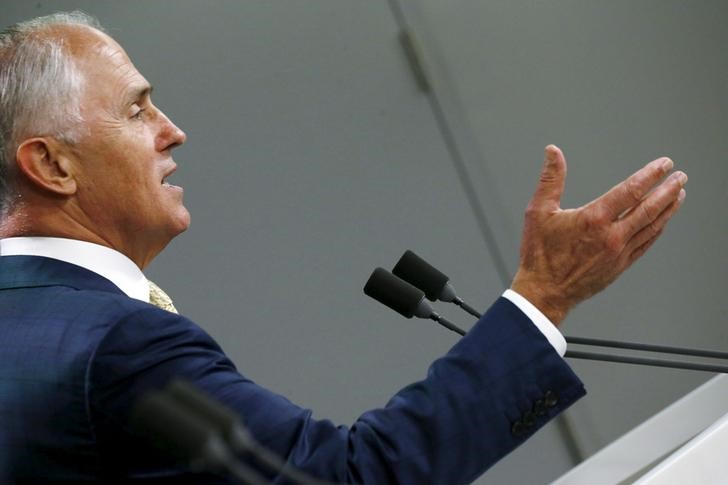By Swati Pandey
SYDNEY, March 6 (Reuters) - Surprisingly strong spending by Australia's government provided a much-needed lift to economic growth last quarter, helping offset the drag from weather-dampened exports and extending the country's 26-year run without recession.
Tuesday's figures from the Australian Bureau of Statistics(ABS) showed government spending rose 1.7 percent in the fourth quarter to an inflation-adjusted A$83.16 billion ($64.67billion) lifting potential for growth. L4N1QN66M
That was just as well as a drop in rural exports and a jumpin consumer and oil imports combined to shave 0.5 percentage points off gross domestic product (GDP) in the quarter.
As a result, the country's current account deficit widened to its largest in over a year at A$14 billion ($10.89 billion).
The GDP report is due on Wednesday and had been forecast to show growth of 0.6 percent in the fourth quarter, unchanged from the previous three-month period. ECONAU
Annual growth likely slowed to a still-respectable 2.5percent, from 2.8 percent the previous quarter.
The Reserve Bank of Australia (RBA) has become more upbeat about economic activity in the last couple of months, thanks inpart to unexpected strength in the domestic labour market and a synchronised upturn in global activity.
That is one reason the RBA is considered certain to leave interest rates at an all-time low 1.50 percent for the seventeenth straight meeting later in the day. AU/INT
Analysts are divided evenly on the chance of a rate hike by December, while interest rate futures 0#YIB: are not fully priced for a 25-basis point rise until early 2019.
Subdued consumer spending, which accounts for around 57percent of GDP, cast a shadow over the RBA's optimism.
While strength in retail and car sales in the fourth quarter suggest consumption made a substantial contribution to overall activity, data out on Tuesday showed that momentum faded in January.
Retail sales rose a tepid 0.1 percent, missing expectations for a gain of 0.4 percent due to weakness in clothing and department stores. Sales had dipped 0.5 percent in December.
Australia's brick-and-mortar retailers have been struggling amid cut-throat competition and as relentless price discounts fail to entice customers facing paltry wage growth and mountains of debt.($1 = 1.2858 Australian dollars)
